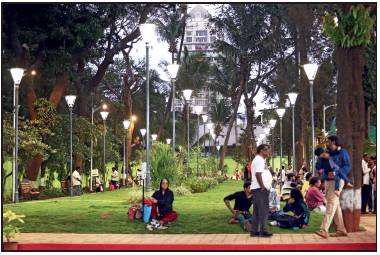BMC’s hard blow to tender coconut sellers: Dispose of husk and shells on your own
 |
| Mohd Shafi, one of the city’s biggest coconut wholesalers, is a worried man, as are the sugarcane juice sellers |
In a city high on the cocaine of concrete, one of the few things that are still natural and salubrious is the tender coconut. But this ubiquitous Rs 50 thirst-quencher is suddenly facing a peril.
Last month, the city’s municipal corporation issued a letter to all tender coconut vendors that they will have to make their own arrangements to dispose of the empty shells as the civic staff will no longer pick them up. The move comes as an ongoing followup to the 2016 environment ministry notification on solid waste management which requires segregation of organic waste at source. While bulk generators and housing societies have already begun the process, coconut sellers and sugarcane juice stalls are now next in line to be reminded of their role in the grand garbage game.
“We have no idea what to do,” says Warden Road-based vendor Aboobaker Kutty. “While back home in Mallapuram (Kerala) the coconut shell is of immense value, a city devoid of green parks, gardens and farms has little use for the fertile compost that this generates,” he says. Adds another vendor, “In Kerala, people line up to pick up the coconut shells and even pay for them because they are so useful as fuel and as fertilizer. Here, we have no idea what to do with the debris. Even if we buy a machine to compost the shells, we have to first dry them as they have such a high water content and then shred them. Where is space? Every inch comes with a cost.”
Mohd Shafi, one of the city’s biggest coconut wholesalers, is a worried man, as are the sugarcane juice sellers
Scientists: Coconut shells have great value, need space and process to use them
Every day, around three to four lakh tender coconuts enter the city in the early hours, and a complex distribution network disseminates them to some 2,000 street vendors and 5,000-6,000 home delivery folk. The bulk of the produce comes from Tamil Nadu and Karnataka, and some from coastal Maharashtra and Gujarat, according to Mohammed Shafi, one of the city’s biggest coconut wholesalers. Although most of the big vendors in the city are still from Kerala, the supply does not in fact come from their state. “The plantation owners of Kerala have figured that they are better off selling the dry brown coconut, where the fibre and shell have multiple lucrative uses,” says Kutty. “Besides, there is no labour left in Kerala. Most of the younger generation is too educated to be climbing trees. They have become doctors and engineers.”
At the heart of this issue, which impacts all bulk generators of organic waste, is the absence of information as well as logistical connectivity between a civic body grappling with overflowing landfills, waste generators such as coconut and sugarcane sellers, and the end-users of fertile compost. With fewer and fewer green spaces left in the city, there is very little scope for using the compost.
In contrast, Jaishree Goyal, a waste management expert in Delhi, who has nudged several big temples in the national capital to compost their massive floral waste, says, “Farmers from all around Delhi come and happily pick up the rich fertilizer on a regular basis.”
While finding space for the storage and dessication of the shells is an issue, the actual content of the shells is immensely valuable—far beyond its simple use as a fertilizer. In fact, it has industrial potential.
A group of scientists and industrialists have already been working on the breakup of the coconut shell to avail of its healthy properties. Aniruddha Pandit, dean, Institute of Chemical Technology, says, “The inner shell of the tender coconut is of great value. We have been working on gathering these shells and pyrolizing (heating in the absence of oxygen) them to get three products—a gas which can be used like LPG, a solid material called biochar which is an absorbent for the purification of drugs as it takes in impurities, and a bio-oil which has many useful chemicals.” Pandit hopes that agro-chemical companies will take this up and create a win-win situation for all the parties concerned.
What is needed is for them to form a cooperative and get the municipal authorities to give them some space, says a chemical engineer and industrialist, also working on the project.
But the ‘s’ word is the biggest challenge. Vishwas Shankarwar, the deputy municipal commissioner in charge of solid waste, says the civic body’s trucks will continue to pick up the shells for a while until the coconut sellers find some solution.
“If we do not get any help, the only thing that is natural and healthy in Mumbai will simply stop,” says Kutty. “As it is we had to raise the price after they banned plastic straws and we had to move to the more expensive paper straws.” Kutty’s stall has been around for more than 50 years and he says that even though he can happily retire, he cannot get away from his coconuts. Pointing to a painted signboard on top of his stall, he says, “My father was right when he came up with this: ‘A coconut a day keeps the doctor away!’ It is little wonder that you will always find several tender coconut vendors outside every hospital. If coconuts stop, there will simply be more patients in Mumbai.” His young nephew, now a mechanical engineer, says even he finds himself drawn to the family trade, and adds with a smile that like most things good, the humble tender coconut will surely survive even as plastic and concrete creep over the world.






